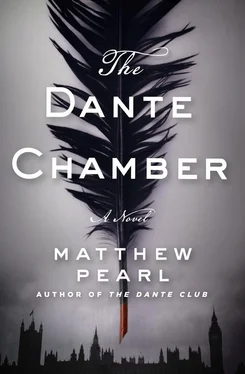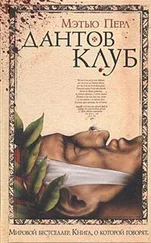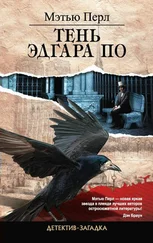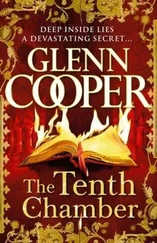Holmes waved away the invitation to look at the booklet. “I suppose there comes a time when every lowly book in the library is wanted by someone.”
Dolly scrutinized Holmes’s face. “You’re familiar with it. Very familiar.”
“That booklet is pure fiction,” Holmes answered, with the most conviction of anything he had yet said to the detective. “It was written by a disgraced Pinkerton detective who was mixed up somehow in the technology catastrophes a few years ago in Boston, and wrote something about that, as well. I believe he served time in prison. Name was Simon Camp. Why, he just tries to squeeze a profit from speculating in the fertile horrors of the public imagination.”
“Like Dante himself,” Dolly said.
“Dante never profited from the Comedy , Inspector, not in that way. It stole what was left of his youth. That poem became his life and death.”
“No poet is ever really young,” Dolly said quietly.
Holmes glared at him.
“Their delicate ears always hear the far-off whisper of death, which coarser souls must travel towards for years before their duller senses touch. It’s a quote from you, isn’t it, doctor?”
“A paraphrase,” Holmes managed to admit.
The detective directed a long stare at Holmes, the kind of stare that went through a man’s soul, and Holmes imagined, for a moment, he could trace the line of a kind of sly, lopsided smile beneath the detective’s dense bushel of a mustache.
Dolly, the smile now fully exposed, removed a gold pocket watch from his coat — Holmes’s. Holmes patted his vest in disbelief.
They all laughed. “I see your point about pickpockets,” Holmes said as he accepted his watch.
“Well,” Dolly said, “I suppose we’re finished, Dr. Holmes.”
“What?” Holmes was startled that, in the end, the detective relented so easily. “Why?”
“Do you wish to speak further, doctor?”
“For heaven’s sake! No! What I mean is, after all that, well, why end our interview there?”
“Because just by looking at you, I can see well enough that you couldn’t help hunt a murderer, like the pamphlet claims. What I mean to say: I believe you. You can stop worrying. I will find out who killed our Mr. Morton, don’t doubt it, and with a little luck it will all stop there.”
Holmes agreed, feeling relieved and, after another moment to mull it over, insulted.
Few stretches of London streets had this many dancing saloons, gambling houses, and grogshops. When night fell and lamps sputtered on over St. James’s Street, the crowds grew. Some of the people hadn’t woken up until shortly before. Others came here to forget the unpleasant or dangerous labors they carried out over the course of a long day among machines that kept up the industrial underpinnings of London and expelled their fumes. There were many sights that were commonplace around these streets but unacceptable almost anywhere else. Drunkards reeling, emptying the contents of their stomachs in the alleys while men and women in stupors, arms and lips linked, stepped over them.
Here, another example: A woman walked by in a dark blue cloak. She did not appear quite young enough to be one of the country runaways that fathers railroaded into London searching for. But she still had that bloom on her pretty cheeks that made her look as though she were freshly kissed. Her auburn hair fell loosely in waves as she staggered from one side of the sidewalk to the other. She waved her hands to catch herself and appeared as though she might lose her balance at any moment. In a more civilized quarter of the city, some Good Samaritan or at least Halfway Decent Samaritan or at the very least a pickpocket would have taken hold of her arm. The police might be notified — a fellow human was in trouble. Not here. Nobody here liked sending for police. A few people did notice her; a man laughed at her, a woman in the early stage of inebriation shook her head in sisterly disapproval.
Besides, this passerby was not the first young woman to be staggering and swaying over these sidewalks. In fact, she was not even the only one who met that description at this moment in time. There was a distinct air about her, though. A profound urgency.
A man followed a few feet behind her, watching her with an expression blending concern and fascination. His coat was buttoned up to the throat. His body was muscular but not athletic. His very round face exhibited the interest that, in spite of our better natures, each of us takes in a scene of distress. Something more sparkled in his hypnotic, deep-set dark eyes, which in narrowing emphasized the penciled ridge over his nose. Dante Gabriel Rossetti was studying every move, committing them to memory.
She stumbled again, this time off the sidewalk. She wandered into traffic and found herself spun around. There was a loud thump as her body collided with an oncoming omnibus and was thrown high into the air, landing clear on the other side of the street.
She came down on the iron railings in front of a house. The railing impaled her in four places.
Blood poured from the wounds, first slowly, then with a gush. Onlookers rushed over — now that she was mortally wounded, interest in her increased at a fast clip. The force of the impact was so great that, as the bystanders attempted to lift her off, one of the spikes of the railing broke off into her chest, causing her to howl in anguish. She remained sensible for a few more moments. She even spoke, though it was a struggle to eject her peculiar words, which sounded like, “There is no more wine.”
Gabriel Rossetti joined the onlookers briefly, but when he felt eyes on him, he turned on his heel and walked away, as he had at the North Woolwich Gardens.
Meanwhile, those who had moved closest to the dying woman — a tavern keeper, a barmaid, the intoxicated workman who had laughed at the victim minutes before — could see her face clearly now under the glow of the gaslight. What they saw horrified them. What they saw was more terrible, if possible, than the spikes tearing apart her flesh. It was not drunkenness that had made her stagger and stumble into death.
It was true what everyone said. Dolly Williamson hated to ever rest during a case in progress. This was not a product of impatience, to which Dolly hardly could be accused of succumbing. When he first moved from his family’s home in the Scottish hills to London, he earned a name for himself as a very methodical clerk in the War Office. Then he resigned from civil service to apply to the police. “You’re joking, Dolly. Turn yourself into a common policeman?” his friends protested. “I want an open-air life,” he retorted, “and I won’t be long in uniform.”
No, as a rule he did not hurry life along. But he also hated missing any opportunities due to inaction.
As the superintendent of the detective division, Dolly was forever pushed and pulled at by the other detectives. Inspector Thornton needed him to authorize a bargain he was cooking up for his investigation into the latest Fenian activity. Thornton sent for Dolly from the back of a beer shop, up a flight of dilapidated stairs, and through a corridor stinking of stale liquor and burnt narcotics. After passing through two more doors, Dolly and Branagan came to a small chamber where Thornton waited for him. He wore an oilskin cloak and had a twitchy mouth that looked determined to yawn.
“I believe the Fenian bastards are planning something big,” Thornton told Dolly.
“You always believe that, Thornton,” Dolly said. “We just put four of them in Clerkenwell, and for two of them we still don’t have enough evidence to take them to Old Bailey.”
“Well, I believe that big, dark devil over there can help me nab some even choicer blackguards.”
Читать дальше












